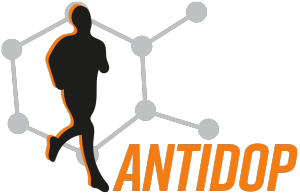About the AntiDop Project
A short intro to our vision, methods and objectives
Mission Statement
AntiDop’s mission is to empower Athlete Support Personnel (ASP) with the knowledge, tools, and training necessary to prevent unintentional doping violations through informed use of nutritional supplements and medications. By combining scientific rigor with innovative educational technologies—such as eLearning, serious games, and personalized learning paths—AntiDop aims to foster a culture of prevention, awareness, and responsible decision-making in sport, ultimately safeguarding athlete health and integrity.
Overall Approach
Description of the basic elements and tools
Dealing with doping in sports, which is a complex and contentious issue and has garnered significant attention in recent years, AntiDop aims to provide training to Athlete Support Personnel (ASP), such as coaches, trainers, nutritionists, managers, and parents, in order to raise awareness, provide scientifically valid information, foster prevention, and avoid unintending violation of the anti-doping rules.
The Training Missions of AntiDop will cover the wide topic of nutrition supplements, pharmaceuticals, and personal dietary plans. The strategy will not turn against NS, but it will emphasize the appropriate use of them and the informed decisions that ASPs make for the athletes they support. International sporting organizations such as the World Anti-Doping Agency (WADA) and the international Olympic Committee (IOC) may have established comprehensive anti-doping rules and regulations to detect and deter doping in sports, but still, there is a high rate of unintended rule violations caused by lack of valid information, lack of awareness and responsibility, inadequate training in sports nutrition and anti-doping practices. By focusing on educating ASPs about the proper use of NS, the project aims to ensure that athletes receive accurate and efficient advice. This not only promotes
athletes’ health and performance but also contributes to the broader goal of clean and fair sports. The rationale for the project lies in the intersection of the potential benefits of nutritional supplements, the risks associated with their misuse, and the need for proper education and guidance.
The project aims to address these issues, making a significant contribution to the field of sports nutrition by proposing an innovative strategy for eLearning/mLearning, which integrates effective didactic approaches like STEM, Gamification and Serious Games.
To achieve its vision, enhance awareness and equip ASPs with the knowledge and skills to proactively research and verify the legality of dietary supplements before offering guidance to athletes, AntiDop establishes various prerequisites in the form of key Scientific and Educational objectives over the project’s duration:
Objective 1: Design and develop an innovative eLearning Platform to deliver Massive Open Online Courses (MOOCs) as training interventions for Athlete Support Personnel (ASP) for appropriate Nutritional Supplement use against Doping.
Objective 2: Search for scientific updates and employ innovative methodological techniques in Training Missions development to support ASP in managing nutritional supplements and pharmaceutical products and enhance their engagement with athletes.
Objective 3: Design and develop prototype interactive and media-enhanced training content in the form of highly reusable Open Educational Recourses (OERs).
Objective 4: Validate the AntiDop Platform and Training Missions under real-world conditions.
Objective 5: Disseminate Lessons Learned, Best Practices and Recommendations
System Architecture
The diagram on the right illustrates the anticipated workflow of the system and delineates various essential architectural components that require development, as elaborated below. The overall layout mirrors the data flow within the envisioned solution, extending from the presentation layer to the eLearning/mLearning platform services and the data layer. These services offer advanced functionalities, facilitating various interventions such as Gamification, Serious Games, access to OERs and personalization of training content.


Funded by the European Union, under the Erasmus+ SPORT funding framework (Project No.: 101184932). Views and opinions expressed are however those of the author(s) only and do not necessarily reflect those of the European Union or the European Education and Culture Executive Agency (EACEA). Neither the European Union nor EACEA can be held responsible for them.
